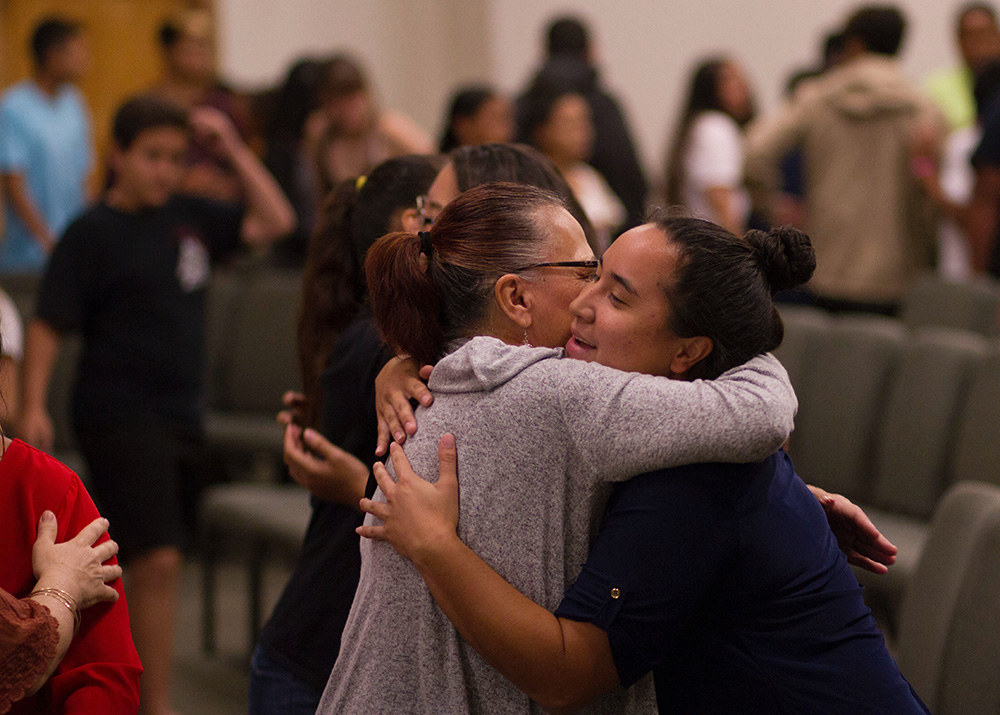
(Unsplash/Erika Giraud)
As John the Evangelist shows us how he understood Jesus, we run into some disconcerting ideas. Last week, we heard that the blind man's disability was not a result of anyone's sin, but the occasion for seeing the glory of God. This week, Jesus explains that Lazarus' illness "is for the glory of God that the Son of God may be glorified through it."
That could sound a bit like my scrupulous Irish ancestors' belief that God sends suffering to purify us or, that afflictions make up for sin. That raises the question, "Does God cause or allow bad things happen to good people for God's own sake? To balance the divine scales?"
That's one oft-preached way of understanding of Jesus' mission. In this perspective, it was God's plan and will that Jesus suffer and die because there was no other way to atone for human sin.
Of course, when we think about that, we might begin to wonder why God's power would be so limited, why God would have to follow a strict law of retaliation. Might that theology be blasphemous?
Scripture scholar Jesuit Fr. Silvano Fausti says that the Gospel of John has no Transfiguration scene because John's whole Gospel gradually reveals Jesus' glory, God's presence in human flesh and history. John's entire Gospel is an unfolding Epiphany.
From that perspective, we see Jesus constantly confronting evil: the natural evil of sickness and death and the human-caused evil of betraying or thwarting the human vocation to love. In each case, Jesus' response is life-giving. Jesus reveals that the essence of God's being and glory is life-giving love. Jesus constantly offers us the invitation to enter into the dynamic of that love.
Using this perspective on this week's Liturgy of the Word ushers us into an experience of epiphany, into scenes of God's self-revelation.
Our selection from Ezekiel comes from the latter third of his writings, the section in which he begins to comfort the people who have brought destruction on themselves. While the people consider themselves as good as dead, Ezekiel speaks in the name of God who wants to bring them back to life, give them a new heart (36:26) and allow them to be enlivened by the divine spirit (39:29).
This promise of the divine spirit leads us directly to our selection from Paul's Letter to the Romans. Paul's talk of flesh and spirit has nothing to do with denigrating the human body or history. Paul is talking about two fundamental orientations in life.
One is caught up in the zero-sum perspective that proclaims, "Pull yourself up by your own bootstraps, it's everyone for themselves and there is no free lunch." That is "the flesh," a fear and avoidance of vulnerability that makes self-protection the No. 1 priority.
Advertisement
In contrast, the perspective of the spirit realizes that no one is either alone or self-sufficient. Instead of being motivated by fear, people who are in the spirit live with the courage-generating assurance that life is a gift and a promise.
Probably the least-noticed words in today’s Gospel come from Thomas, who says, "Let us go to die with him." With those words, Thomas proclaimed the very same faith that Mary and Martha professed about Jesus as the resurrection and the life. Thomas was telling his companions that living in fear was truly a dead end.
That awareness opened them to new dimensions of life, to the Spirit of Christ who would lead them beyond their greatest imaginings. Thomas' decision to accompany Jesus put into action the faith described in all the dialogue that was to come about the resurrection and the life.
When we pay attention to Thomas in this Gospel scene, we get the idea that he had received new life just as did Lazarus. Jesus raised Lazarus and comforted his sisters. In doing so, he confronted and thoroughly undermined the powers of death. When Thomas said that he would follow Jesus in spite of the danger of death, he made the same declaration that we make each time we say, "Lord, by your cross and resurrection, you have set us free."
Today's Scriptures urge us to practice living faith, to allow the Spirit of Christ to free us from any fear that focuses us on our own well-being as if it could be separated from that of others. Through the power of Christ's Spirit working in us, we are called to confront and undermine the powers of sin and death.
Being caught up in the dynamic of loving, we can witness to the glory of our life-giving God who does not send suffering but accompanies us in it through one another.
Let us strive to be with Thomas and keep saying, "Let us go with him."








